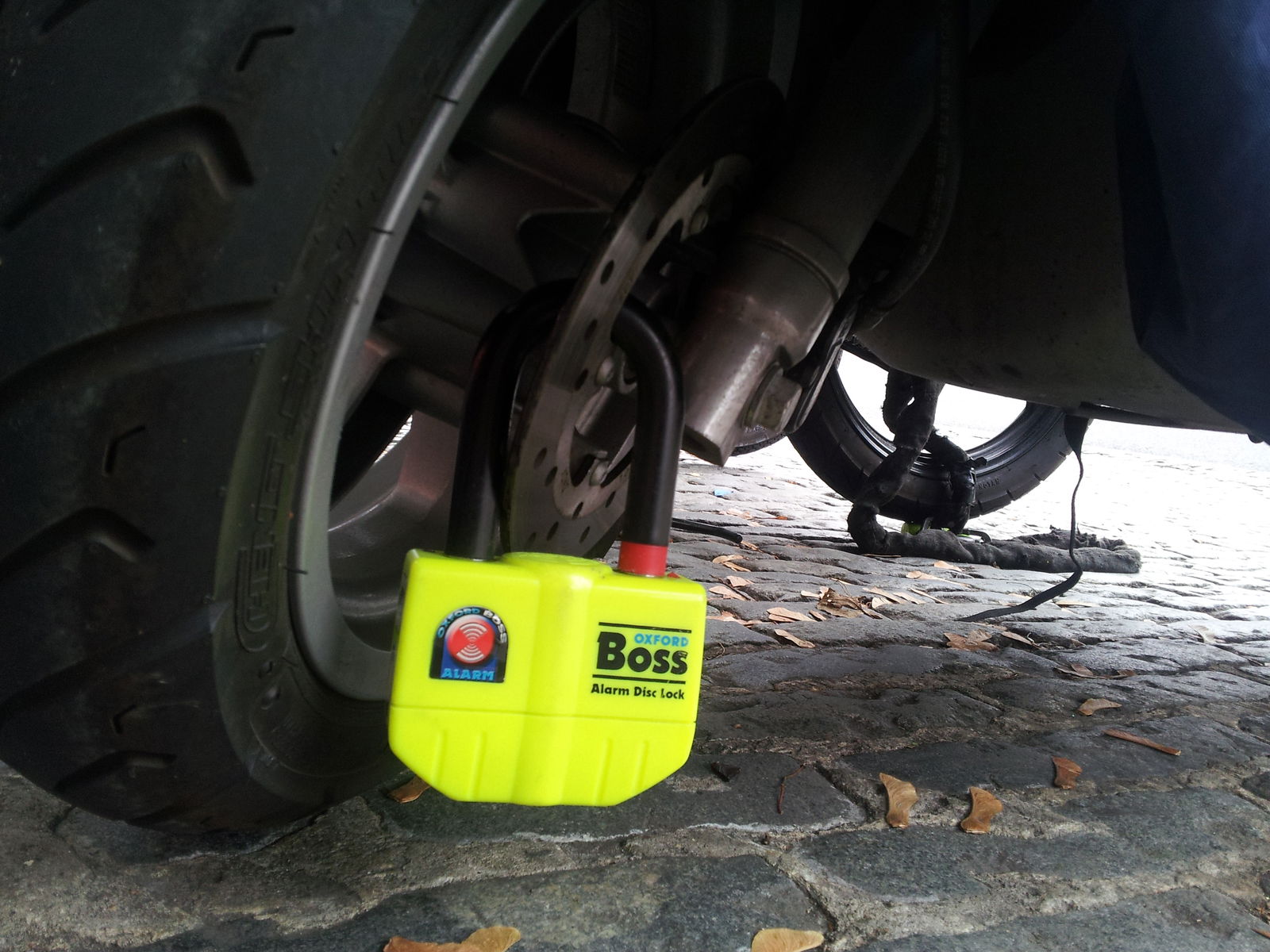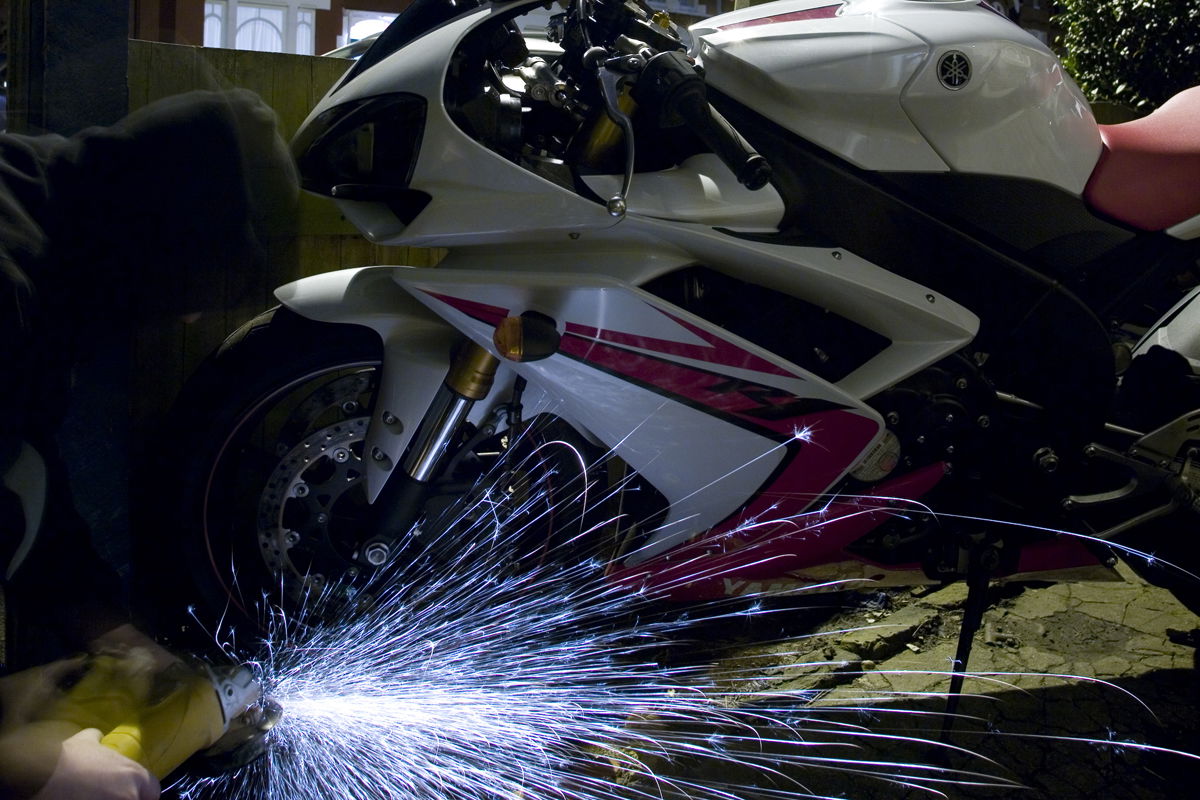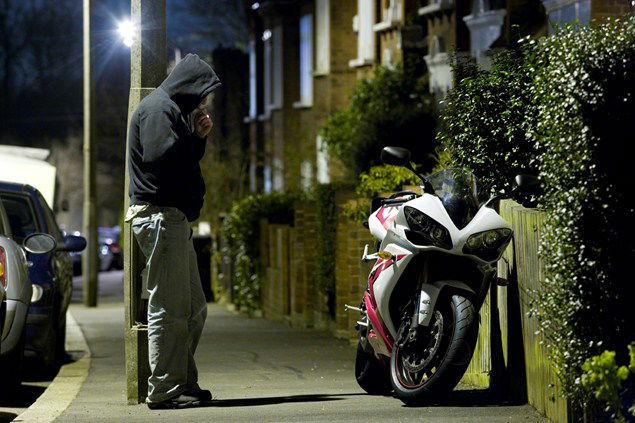How to reduce your insurance when its time to renew
INSURANCE is boring, there are no two ways about it and I should know, I worked in the industry for nearly ten years! Adding to the boredom are the hours spent talking on the phone to Gillian from the sales team who doesn’t know a Ducati from a Datsun!
There is one way though that you can make the whole experience a little less painful and that’s by sticking it to the suits and getting a pukka deal on your bike’s insurance cover.

INSURANCE is boring, there are no two ways about it and I should know, I worked in the industry for nearly ten years! Adding to the boredom are the hours spent talking on the phone to Gillian from the sales team who doesn’t know a Ducati from a Datsun!
There is one way though that you can make the whole experience a little less painful and that’s by sticking it to the suits and getting a pukka deal on your bike’s insurance cover.
How to reduce your insurance premium

Security
Depending on the type of bike you ride and your riding experience, theft will for most be the biggest risk to you and your bike. The best way to reduce that risk is with security. Be it physical security like locks chains and ground anchors, or fancy alarms and trackers. Security doesn’t just make it harder to pinch your pride and joy, it also tells the underwriter – the company that pays out in the event of a claim – that you are serious about keeping your bike safe from harm.
Security top tips
- Always go for Thatcham approved kit – this should be known to the insurer and may get you a discount
- Double up – a chain and disc-lock or even two chains are a much bigger deterrent than just one item
- make certain the security is listed accurately on your policy – this could prevent the insurer from not paying out in the event of a claim
- If you have told the insurer about it, always use it. Failure to do so could prevent a pay-out
- If you street park, invest in a bike cover or better still; try parking in your front garden
- Don’t just rely on your OEM immobiliser – there are readily available blockers that can bypass these
- If you live in a big city, try and share a friend’s garage. Even a garage away from home is better than street parking

Motorcycle insurance cover options:
The basic levels of cover available in the UK are:
Third-Party Only (TPO)
Covers you as a road user and is the minimum legal requirement to use the roads. If you have a claim where you hit someone or something, their claim is covered by your policy but your vehicle is not covered for repair. Has no excess to pay in the event of a claim. TPO covers the least but isn’t always the cheapest – most bikes over £4500 cannot be insured on TPO
Third-Party Fire and Theft (TPFT)
Covers the same as Third Party Only but also includes cover for fire, theft and attempted theft. Will normally have an excess to pay in the event of a claim.
Comprehensive (COMP)
Covers everything included in Third Part only and Third Party Fire and Theft but also covers you for accidental damage. Should your bike get damaged when no other road user is present – fell off the stand on the drive for instance – the insurer will repair the damage if you pay the excess. Covers the most and is generally the most expensive but, for more experienced riders with high NCD it can be the best value.

Tips on choosing insurance cover
Keep an eye on the excess and check whether there is a voluntary excess included. The fact is if you’re riding a £500, twenty-year-old hack that you plan to ride into the ground. There’s no point insuring it on a policy that incurs a £350 policy excess; the chances are if you are involved in a claim the pay-out will be nil. You may as well check out what TPO or TPFT are.
If you have a No Claims Discount of four years or more, you should protect it. In some cases, it will cost little or nothing more to do it - especially if the rest of your information is fairly low risk.
Add-on products, legal cover, breakdown, keycare, personal accident cover
For any insurance broker, these are the money makers. They cost them pennies, yet they charge exorbitant premiums for having them on the policy. Firstly, check if you need the extra cover: Does your bank account cover the breakdown, or doesyour home insurance policy cover the bikes keys if they were lost?
Allows you to ride to and from a single permanent place of work. If you have two or more jobs and commute to both speak to your broker as in some cases this will require more cover.
Business use class 1:
Allows you to ride to more than one location in connection with your employment. For instance, if I have two offices in different parts of the country and use both from time to time, business use class 1 would fit the bill. It would also allow me to go and see customers on their premises, but it would not allow me to deliver goods to customers – for that you need courier insurance which is more specialised and for the most part requires a bespoke quote from a specialist broker.
Where to buy insurance from?
Get on the net and search! Start about 30 days prior to your renewal and hit the comparison sites. Don’t just use one comparison site, you must try them all. Some brokers have specialist deals done with certain comparison sites so the price from one company can vary from site to site.
If you have found a deal better than your renewal make sure your company don’t auto-renew your policy. This is mostly in the terms and conditions and requires you to opt-out – cheeky! – normally you must do this with at least a fortnight of your policy left.
The main thing I cannot stress enough is to shop around when it's time to renew! There are no prizes for loyalty when it comes to insurance and it’s a buyers’ market with brokers tripping over themselves to get you the best deal. Be brutal and don’t be shy of playing two companies off against each other. If they are both quite close on the price, see if you can get some free legal cover or breakdown if you need it. It never hurts to ask as the price of those products can easily be altered by most brokers.
.jpg?width=1600)
Insurance jargon explained:
If you’re struggling to understand all the insurance terms used when buying an insurance policy have a read of this guide to the most commonly used terms.
Certificate of Insurance - COI:
Once you have paid for your insurance your insurer will issue a Certificate of Insurance. This is proof that you are insured.
No Claims Bonus/Discount - NCB/NCD:
The discount that you have earned on a previous insurance policy. Insurers give discounts determined by the number of years that a rider remains claim-free and NCB must be earned separately for each insured bike unless they sit on a multi-bike policy (where NCB is shared). However, a few companies give discounts for second bikes so it’s worth checking. Some companies will offer up to 70% discount if you have five years no claims.
Protected No Claims Bonus:
Some companies will allow you to add protection to your no claims bonus. This means you can make a few (normally three but please check) claims over a specific period of time without your NCB being reduced. But even if you protect your NCB, this does not prevent your premium from rising if you make a claim. Protecting the bonus only protects your bonus discount or years. The price could still rise because of a claim.
Excess:
The amount of money that you pay in the event of a claim. Compulsory excesses differ with various insurers. Young rider excesses are common across the industry but the type of bike you ride or the area in which you live can also affect this.
Voluntary excess:
This is the amount a rider chooses to pay in addition to the compulsory excess. If you decide to bear an additional excess it may bring your premium down but it’s a good idea to check if any compulsory excesses already apply to the policy, as voluntary excess is paid in addition to any compulsory excess.
Uninsured Loss Recovery (ULR):
Uninsured Loss Recovery or Legal Expenses Cover (LEC). This sometimes comes as standard on bike insurance in the UK so it's always worth checking. If not, it's normally available for an additional premium. If you're looking for insurance online and can't find this on the insurer's website, call them. It can assist with the recovery financial losses that are not covered by the standard insurance product - be that lost earnings, kit and clothing, or belongs that were stolen with the motorcycle.
Material Fact:
This is any factor that might affect a broker or underwriter's decision to provide you with insurance. UK law means you are obliged to advise your insurance company of any material facts, such as points on your licence or modifications to your bike. If facts come to light after a claim has been made, the insurer has the right to refuse payment for all or part of the claim.
Modifications:
A modification is any change to your bike's specification after the point of manufacture that isn’t a like-for-like replacement part. Simply saying “I didn’t know that was aftermarket” isn’t enough, it’s down to you to check what is standard and what isn’t. Any modifications on a bike that the insurer doesn’t no about could invalidate your cover or could not be replaced in the event of a total loss claim.








